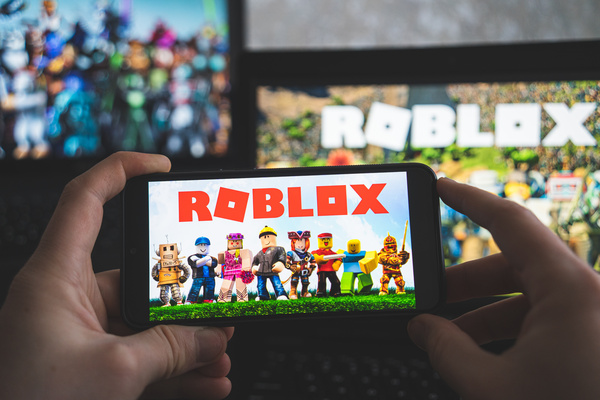Anúncios
In the dynamic landscape of drama, genres are constantly evolving to better capture the zeitgeist of society. One particularly pressing topic that has gained significant traction is the importance of mental health in dramatic storytelling. This emerging narrative underscores the necessity of portraying realistic psychological struggles within the broader context of character development and interpersonal dynamics. To truly understand how drama influences societal perceptions of mental health, it invites a deeper exploration of this critical and increasingly relevant issue.
Dramatic narratives have an extraordinary ability to shape societal views, particularly concerning sensitive topics like mental health. Plays, films, and television shows that ingeniously incorporate themes of mental health not only entertain audiences but also serve as a vital educational tool. They provide insight into the intricate complexities of mental wellbeing, effectively breaking down the stigmas that often surround it. In doing so, these narratives play an essential role in promoting empathy, understanding, and conversation around mental health challenges.
A notable example of this growing trend can be observed in the recent surge of dramas featuring protagonists who grapple with various mental health challenges, including anxiety, depression, and other related issues. These portrayals bring an undeniable authenticity to the narrative, allowing audiences to establish a personal connection with the characters. As viewers become more relatable to the struggles depicted on screen, they gain a glimpse into the daily realities of those living with mental health challenges. This connection fosters a sense of solidarity and validation for individuals undergoing similar experiences, contributing to greater communal understanding.
Moreover, by integrating mental health themes into their narratives, drama creators are making significant strides towards transforming societal perceptions of psychological issues. By weaving timely narratives that encourage dialogue around these often-taboo subjects, they successfully challenge preconceptions. Dramatic storytelling transcends mere entertainment; it acts as a crucial catalyst for social change, inspiring individuals to seek help for themselves or to support loved ones in need of assistance.
One particularly striking instance is the portrayal of mental health issues in the iconic Netflix series “BoJack Horseman.” This groundbreaking show cleverly combines humor and drama as it tackles heavier themes of addiction, depression, and self-destructive behavior. The poignant storytelling and multifaceted character development resonate deeply with viewers, effectively shedding light on the ramifications of mental health deterioration. The complexity of BoJack’s character illustrates how unresolved issues can lead to a downward spiral, reinforcing the significance of understanding and addressing mental health matters.
Current theatrical productions and films consistently emphasize authentic representations of mental health, as exemplified by productions like “The Great.” This show masterfully balances drama with humor while exploring themes of isolation and despondency. Through such narratives, the fine line between sanity and madness is explored, offering insight that can provide audiences with reassurance. By showcasing characters who reflect real-life struggles, viewers are reminded that they are not alone in facing their challenges.
In addition to scripted drama, improvisational theater is also embracing this trend. Various performance troupes are producing shows that directly address themes of mental health, utilizing a mix of humor and raw emotion to engage audiences. The spontaneity and genuine emotion offered in these formats create a powerful representation, as they make the discussion of mental health feel even more immediate and authentic. Not only do these performances entertain, but they also prompt vital conversations about mental health, leading to increased awareness and comprehension.
Creating drama that successfully addresses mental health requires a delicate balance. Writers must approach this topic with care to avoid inadvertently reinforcing negative stereotypes that are all too common in media portrayals. Instead, successful dramas humanize characters who experience mental health challenges, presenting them as nuanced individuals rather than mere plot devices meant for entertainment. These narratives shine a light on the intricacies of their emotional journeys, allowing for a deeper audience connection and fostering greater empathy.
Furthermore, another effective method for representing mental health in drama is through the use of symbolism and metaphor. Filmmakers and playwrights often employ rich imagery to convey complex psychological states, offering viewers a more profound experience. This artistic approach enables audiences to engage with the material on multiple levels, effectively grasping the nuances of mental health dialogues through the interpretation of carefully crafted symbols. Such techniques pave the way for a more thoughtful understanding of the characters and their experiences.
As mental health themes continue to gain prominence in drama, creators are increasingly striving to collaborate with mental health professionals. This collaboration ensures that portrayals are accurate and sensitive, making it easier for audiences to relate to the narratives presented. Accurate representation can bridge the divide between fictional portrayals and real-life experiences, promoting informed discourse surrounding mental health issues and fostering greater societal understanding.
Moreover, digital platforms have significantly amplified the reach of mental health-themed drama. With the proliferation of streaming services, independent creators are now more empowered than ever to share their stories and perspectives. This increased accessibility allows for diverse voices to emerge, offering fresh and varied perspectives on mental health issues. Diverse representation is essential because it helps challenge stereotypes, dismantling preconceived notions and broadening audience understanding across cultural lines.
In addition to digital platforms, social media has also played a crucial role in disseminating these narratives. When dramas tackle mental health themes, audiences often turn to platforms like Twitter, Instagram, and TikTok to voice their thoughts, reactions, and emotions. Through hashtag activism and online discussions, viewers share their personal experiences while amplifying important conversations surrounding mental health. This virtual dialogue not only creates a sense of community but also encourages individuals to break their silence and speak openly about their struggles.
The success of dramas addressing mental health is also reflected in the response from mental health organizations and advocacy groups. These narratives often receive accolades for raising awareness and reducing stigma related to mental health challenges. Advocacy groups frequently collaborate with creators to ensure that themes are thoughtfully handled, ultimately promoting responsible storytelling that aligns with the goals of increasing understanding and compassion.
As we continue to witness the ongoing evolution of drama, it is vital for creators to strike an appropriate balance between entertainment and responsibility. The impact of mental health struggles can be profound and far-reaching, which demands that writers navigate this complex subject with care and intention. Drama possesses a unique opportunity to spark vital conversations and promote healing, and this responsibility should never be taken lightly.
Some groundbreaking plays and films have recently emerged, delving deeply into these themes while engaging audiences on multiple levels. Works such as “Dear Evan Hansen” and “Ordinary People” hone in on mental health challenges within the context of family dynamics, reminding audiences that mental health issues are not isolated. Rather, they affect relationships, community cohesion, and shared human experiences, emphasizing the necessity for understanding and connection.
The ongoing dialogue surrounding mental health in drama continues to expand, positively informing future creators who seek to share their stories. Aspiring writers are encouraged to explore their own experiences and perspectives while remaining mindful of the potential impact their narratives may carry. Authenticity in storytelling shines through when creators draw from their truths, allowing audiences to connect with the narratives in meaningful, transformative ways.
Another burgeoning trend within the realm of drama is the exploration of cultural perceptions regarding mental health. Societal norms and values play a significant role in shaping how mental health issues are viewed and treated across various cultures. By incorporating diverse cultural perspectives into their narratives, creators can present a more nuanced examination of mental health that resonates with audiences across a wide demographic spectrum.
The ongoing discourse surrounding mental health in dramatic storytelling reflects a significant societal shift toward greater awareness and understanding. As this awareness continues to grow, the creative industry must adapt and evolve to ensure that mental health issues are represented responsibly and sensitively. This commitment to responsible storytelling will foster a richer understanding of the human experience, giving voice to those who often feel unheard and underserved.
In summary, the integration of mental health themes into dramatic storytelling is an essential and timely trend that merits attention and appreciation. By humanizing mental health struggles, challenging stereotypes, and breaking down barriers, creators can empower individuals while promoting greater understanding among audiences. As viewers engage with these poignant narratives, they gain vital insight into their own lives and those of others, which reinforces the importance of connection, empathy, and compassion in times of crisis. With continued collaboration, innovation, and sensitivity in storytelling, drama can cultivate an environment that fosters healing and propels profound societal changes forward.



